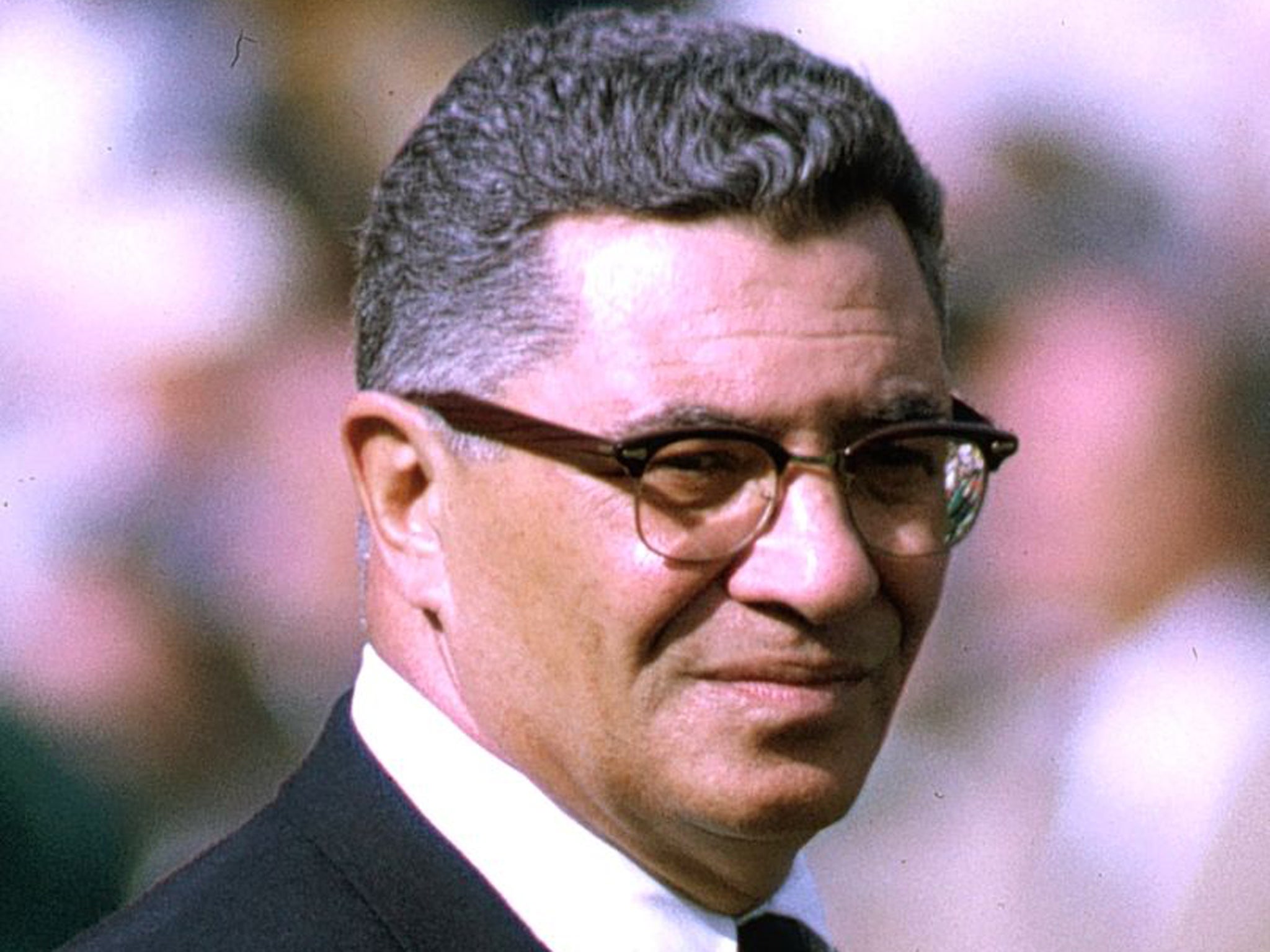The Last Word: Fergie fails to honour lore of Vince Lombardi
NFL legend highlighted Fergie’s flaws when he said a man who belittles others is not a leader

Sir Alex Ferguson looked into the mirror of another man’s life and saw himself. He involuntarily invited comparison by identifying with Vince Lombardi, who chose coaching over the priesthood, and held presidents in thrall to his vision of his sport as the window into the soul.
Lombardi is central to the mythology of the NFL as the man who created its first dynasty, at the Green Bay Packers. They will genuflect towards his legend at Wembley tonight, when San Francisco 49ers, the franchise he died trying to revive, will give gridiron the global dimension it craves.
His observations on American Football as a reflection of life itself have been immortalised and condensed into the psychobabble of performance. His management strategies are studied like scripture. The presence of Ferguson among the supplicants is revealing.
He refers to Lombardi’s exceptional biography, When Pride Still Mattered by Pulitzer Prize-winning author David Maraniss, with something approaching awe. “Obsession, commitment, fanaticism – it was all there,” he said. “I saw myself.”
Each worked the emotional extremes. They metaphorically had “love” and “hate” tattooed on their knuckles. Each demanded control. They manipulated those around them, and used the power of perception to subjugate allies and opponents alike.
Lombardi’s tragically premature death, from an aggressive form of colon cancer at the age of 57 in 1970, limits perspective because he was never isolated from the game he defined and dominated. But his voice, amplified beyond the grave, highlights Ferguson’s flaws.
Lombardi spoke of winning as a habit in these terms: “Watch your thoughts, they become your beliefs. Watch your beliefs, they become your words. Watch your words, they become your actions. Watch your actions, they become your habits. Watch your habits, they become your character.”
Lombardi was a tyrant on the training field. He was dismissive of the press. He could be duplicitous if it suited his purposes. Yet he returned time and again to his Jesuit upbringing and judged a man by the strength of his character.
“The character, rather than education, is man’s greatest need and man’s greatest safeguard, because character is higher than intellect. While it is true the difference between men is in energy, the strong will, settled purpose and invincible determination, the new leadership is in sacrifice.
“It is in self-denial, in love and loyalty, fearlessness. It is in humility and it is in the perfectly disciplined will. This, gentlemen, is the distinction between great and little men.”
Ferguson’s character polarises debate. His gracelessness towards such undeserving cases as David Beckham and Steven Gerrard was cynical and commercially expedient. He is compromised also by Lombardi’s notion of teamwork, a fusion of loyalty, charity and mutual respect.
“You show me a man who belittles another and I will show you a man who is not a leader. You show me one who is not charitable, who has no respect for the dignity of another, is not loyal, and I will show you a man who is not a leader.”
Ferguson is being judged by a ghost, who set this daunting agenda: “After all the cheers have died down and the stadium is empty, after the headlines have been written, and after you are back in the quiet of your room and the championship ring has been placed on the dresser, the enduring thing that is left is the dedication to doing with our lives the very best we can to make the world a better place in which to live.”
Ferguson is the ultimate football man. But Lombardi was the better, more complete man.
Blatter is part of the problem
The clown’s mask slipped as Sepp Blatter lectured black players on the futility of boycotting the World Cup.
It was typically disingenuous of the Fifa president, during a self-parodic performance at the Oxford Union, to suggest such an act “has never given us any solutions”.
His decision to ignore the obvious example of South Africa was recognition of a real and present threat to the event which funds his pretensions as a statesmanlike figure.
The finals in Brazil next summer will pose damning questions about social and economic iniquities. Russia’s World Cup, scheduled for 2018, is already tainted by recurring racism.
Blatter’s bizarre analogies involving Syria failed to divert attention from the deaths of migrant workers, suspicious voting strategies and institutionalised homophobia associated with Qatar, venue for 2022.
His instinctive response to the latest racism controversy, featuring Manchester City’s Yaya Touré (below), was to float the idea of clubs being banned from the Champions’ League.
It was a political ploy which places pressure on his rival, Uefa president Michel Platini, to act.
Militancy is not merely advisable, but inevitable. People like Blatter, who deliver empty soundbites, are part of the problem.
High as a kite
The malevolent spirit of Lance Armstrong and Ben Johnson is living in a pigeon loft. Six Belgian racing birds have been banned for abuse of performance-enhancing drugs, five for human painkillers, the sixth for cocaine. Truly, you cannot make it up.
Subscribe to Independent Premium to bookmark this article
Want to bookmark your favourite articles and stories to read or reference later? Start your Independent Premium subscription today.

Join our commenting forum
Join thought-provoking conversations, follow other Independent readers and see their replies